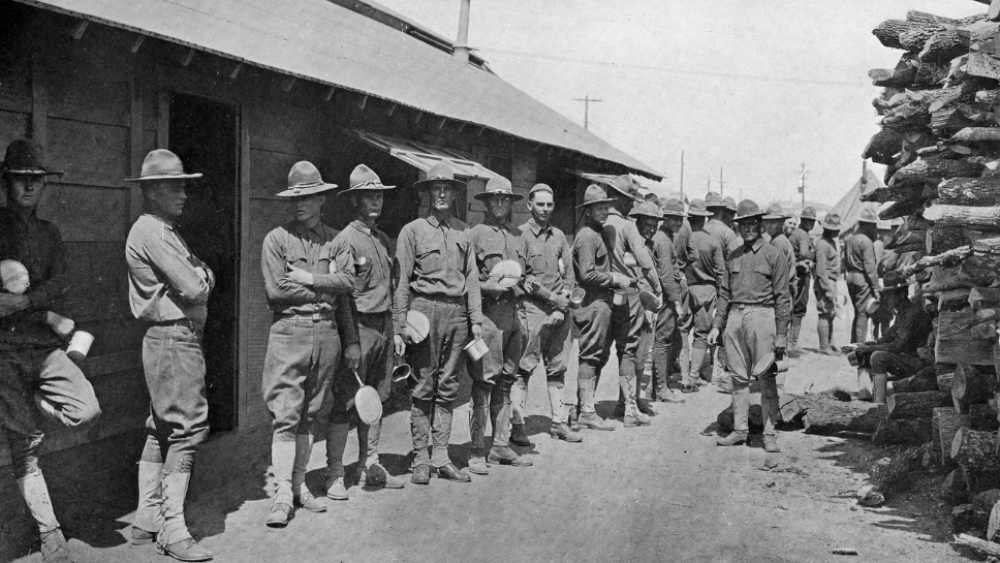Welcome back to our five-minute Fort Worth history series. This month, we’re diving into the major businesses and industries that brought Panther City into the 20th century.

Just imagine rolling up to the First National Bank in your sweet new ride.
Photo courtesy of Fort Worth Star-Telegram collection, UTA Libraries
Show me the money
You gotta have money to make money so in 1870 Capt. Martin B. Loyd established an exchange office that became one of the oldest banks in town. Seven years later, he chartered the First National Bank, which primarily served cattlemen.
In 1903, the Continental Bank and Trust Company was established by H.H. Wilkinson and was one of the first local banks to lend money for oil development.

The former Swift and Armour meatpacking district is slated for redevelopment next to the Historic Stockyards.
Postcard courtesy of Fort Worth Star-Telegram collection, UTA Libraries
🍖 We’ve got the meat
We already learned about Cowtown’s livestock legacy and the first edition of the Fort Worth Stock Show in 1896. The blooming livestock trade set the city up to be a leader in the meatpacking industry and triggered silent growth, prompting a 300% population increase from 1900 to 1910.
The Fort Worth Dressed Meat and Provision Company kicked off with a capital stock of $500,000, paving the way for the openings of Swift & Company, Armour & Company, and McNeill & Libby packing houses in 1902.

Soldiers standing in line at the Camp Bowie mess in 1917.
Photo courtesy of Fort Worth Star-Telegram collection, UTA Libraries
✈️ Incoming aircraft
During WWI, Amon Carter and Ben E. Keith worked with the Canadian Royal Flying Corps to set up three airfields in Cowtown because the weather was good for training. In 1917, the $3 million Camp Bowie was constructed across 2,186 acres to serve the US War Department’s 36th Infantry Division. Military and aviation are still important industries in Fort Worth today.

There she blows — the Ranger oil strike of 1917 was just the first.
Photo courtesy of Fort Worth Star-Telegram collection, UTA Libraries
🛢️ We’ve struck oil
In October 1917, the small town of Ranger (~90 miles west along the T&P Railroad) changed the future of Fort Worth. A geyser of black gold rushed from the ground, uncorking the oil region surrounding Cowtown in Desdemona, Breckenridge, and Burkburnett. By 1920, the city had 12 active and under-construction oil refineries.
Ready to zoom forward? Jump back to the present day and check out Fort Worth’s current driving industries and major employers.





